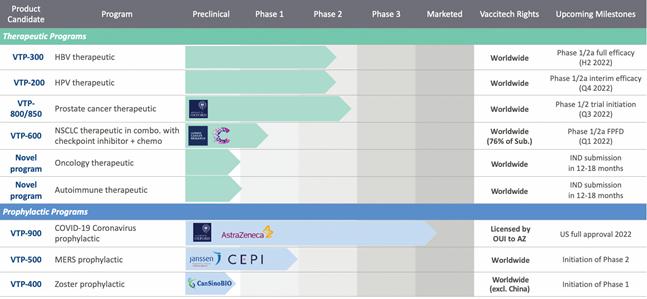Our business operations and current and future relationships with principal investigators, healthcare providers, including physicians, consultants, third-party payors and customers may be subject, directly or indirectly, to U.S. federal and state, as well as foreign, healthcare fraud and abuse laws, false claims laws, health information privacy and security laws, and other healthcare laws and regulations. If we are unable to comply, or have not fully complied, with such laws, we could face substantial penalties.
Healthcare providers, including physicians and third-party payors in the United States and elsewhere will play a primary role in the recommendation and prescription of any product candidates for which we obtain marketing approval. Our current and future arrangements with healthcare professionals, principal investigators, consultants, customers and third-party payors subject us to various U.S. federal and state fraud and abuse laws and other healthcare laws, including, without limitation, the federal Anti- Kickback Statute, or AKS, the federal civil and criminal false claims laws, and the law commonly referred to as the Physician Payments Sunshine Act, or Sunshine Act, along with regulations promulgated under such laws. These laws impact, among other things, our clinical research activities, proposed sales, marketing and educational programs, and other arrangements and relationships with third-party payors, healthcare professionals, and other parties through which we market, sell and distribute our product candidates for which we obtain marketing approval. In addition, we may be subject to patient data privacy and security regulation by both the U.S. federal government and the states in which we conduct our business, along with foreign regulators (including European data protection authorities). See section entitled “Business – Government Regulation – Other Healthcare Laws and Compliance Requirements.”
Because of the breadth of these laws and the narrowness of the statutory exceptions and regulatory safe harbors available, it is possible that some of our business activities could be subject to challenge under one or more of such laws. Even if precautions are taken, it is possible that governmental authorities will conclude that our business practices may not comply with current or future statutes, regulations or case law involving applicable fraud and abuse or other healthcare laws and regulations. If our operations are found to be in violation of any of these laws or any other governmental regulations that may apply to us, we may be subject to significant penalties, including without limitation, civil, criminal and administrative penalties, damages, fines, disgorgement, individual imprisonment, exclusion from participating in federal and state funded healthcare programs, such as Medicare and Medicaid, additional reporting requirements and oversight if we become subject to a corporate integrity agreement or similar agreement to resolve allegations of non-compliance with these laws, contractual damages, diminished profits and future earnings, reputational harm and the curtailment or restructuring of our operations. If any of the physicians or other healthcare providers or entities with whom we expect to do business is found not to be in compliance with applicable laws, that person may be subject to significant criminal, civil or administrative sanctions, including exclusions from government funded healthcare programs. Prohibitions or restrictions on sales or withdrawal of future marketed products could materially affect business in an adverse way.
The risk of our being found in violation of these laws is increased by the fact that many of them have not been fully interpreted by applicable regulatory authorities or the courts, and their provisions are open to a variety of interpretations. Efforts to ensure that our business arrangements with third parties will comply with applicable healthcare laws and regulations will involve substantial costs. Any action against us for violation of these laws, even if we successfully defend against it, could cause us to incur significant legal expenses and divert our management’s attention from the operation of our business. The shifting compliance environment and the need to build and maintain robust and expandable systems to comply with multiple jurisdictions with different compliance and/or reporting requirements increases the possibility that a healthcare company may run afoul of one or more of the requirements.
Our employees, independent contractors, consultants, commercial partners and vendors may engage in misconduct or other improper activities, including noncompliance with regulatory standards and requirements.
We are exposed to the risk that our employees, independent contractors, consultants, collaborators, CROs or CMOs, principal investigators, suppliers and vendors may engage in fraudulent conduct or other illegal activity. Misconduct by these parties could include intentional, reckless and negligent conduct that fails to: comply with the regulations of the FDA and other comparable foreign regulatory bodies, provide true, complete and accurate information to the FDA and other comparable foreign regulatory bodies, comply with manufacturing standards we have established, comply with healthcare fraud and abuse laws in the United States and similar foreign fraudulent misconduct laws or report financial information or data accurately or to disclose unauthorized activities to us. If we obtain FDA approval of any of our product candidates and begin commercializing those products in the United States, our potential exposure under such laws and regulations will increase significantly, and our costs associated with compliance with such laws and regulations are also likely to increase. In particular, the promotion, sales and marketing of healthcare items and services, as well as certain business arrangements in the healthcare industry, are subject to extensive laws designed to prevent fraud, kickbacks, self-dealing and other abusive practices. These laws and regulations may restrict or prohibit a wide range of pricing, discounting, marketing and promotion, structuring and commission(s), certain customer incentive programs and other business arrangements generally. Misconduct by persons acting on our behalf could also involve the improper use of individually identifiable information, including, without limitation, information obtained in the course of clinical trials, which could result in regulatory sanctions and serious harm to our reputation.
